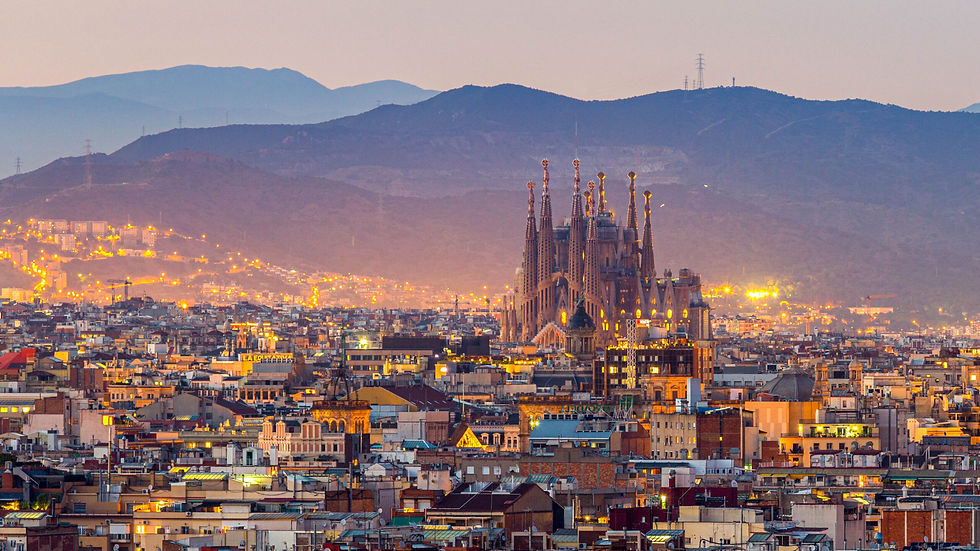How to Plan a Corporate Event in Spain from Abroad: Legal, Logistics & Venue Guide
- Renske Wijma
- Oct 2
- 2 min read
Updated: Oct 7
Planning a corporate event in Spain is an exciting opportunity for international companies. From Barcelona’s cosmopolitan charm to Madrid’s world-class venues and Valencia’s sunny coast, Spain offers unique experiences for conferences, incentive trips, and corporate retreats. But if you’re based abroad, navigating legal requirements, logistics, and local suppliers can feel overwhelming. This guide breaks down everything you need to know.
Why Choose Spain for Your Corporate Event?
Excellent flight connections across Europe and beyond
Modern venues and historic spaces (castles, wineries, rooftops)
Competitive pricing compared to other Western European countries
Renowned food, culture, and hospitality
Ideal for incentive travel and team-building thanks to climate and activities

Understand Legal Requirements
Event permits: Certain public venues (plazas, parks, heritage sites) require municipal permits. Each city (Barcelona, Madrid, Valencia) has its own process.
Noise and alcohol regulations: Outdoor events have strict sound limits; alcohol licenses may be required.
Insurance: Liability insurance is recommended for all corporate gatherings. - COVID/health protocols: Requirements have eased but may still apply for large international conferences.
Tip: Partner with a local event agency in Spain to handle permits and liaise with city councils.
Venue Selection
Conference centres: IFEMA Madrid, Barcelona International Convention Centre.
Unique venues: Gaudí landmarks, Mediterranean beach clubs, wineries, rooftops with panoramic views.
Capacity & logistics: Check accessibility, translation booths, catering rules.
Booking timeline: Secure venues 6–12 months in advance for peak season (spring & autumn).
Pro tip: Many Spanish venues require contracts in Spanish. Having bilingual negotiation support is crucial.
Logistics & Suppliers
Flights & transfers: Arrange group airport transfers, consider high-speed train connections (AVE) between Madrid, Barcelona, Valencia).
Accommodation: Business hotels often provide conference packages.
Suppliers: Caterers, audiovisual, décor and entertainment. Local knowledge is key to quality and price.
Team-building activities: Sailing regattas, flamenco workshops, cooking paella classes.
Budget & Timeline
Budget ranges: Spain offers flexibility, from high-end luxury venues to cost-effective city events.
Timeline:
12 months before: Secure venue & permits
6 months before: Book hotels, suppliers, entertainment
3 months before: Finalize agenda, catering, logistics
1 month before: Confirm registrations, send delegate info packs
Partner with a Local Event Agency
While you can research remotely, a local event management partner ensures:
Smooth permit handling
Supplier negotiation in Spanish
On-site coordination
Multilingual staff for international guests
Have a look at our portfolio and discover how Eventic helps international companies organize corporate events in Spain.
Final Checklist Before You Fly to Spain
✅ Permits approved
✅ Venue contract signed
✅ Insurance arranged
✅ Suppliers confirmed
✅ Delegate logistics managed
✅ On-site event manager appointed
Conclusion
Spain offers endless opportunities for unforgettable corporate events, but success depends on understanding local regulations, securing the right venue, and managing logistics effectively. With expert local support, your international team can focus on connecting, celebrating, and achieving business goals — while leaving the Spanish paperwork and planning to trusted hands.


Comments